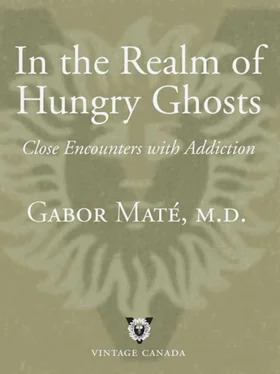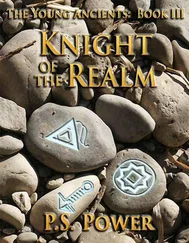I agree to prescribe Serena an antidepressant, explaining that it may or may not work and may or may not cause side effects, depending on a person’s particular physiology. And I tell her we can try another one if this one doesn’t work. I hand her the prescription and search in my heart to find compassionate words, words that may help soothe the anguish Serena bears in hers. And the words come, haltingly at first.
“What happened to you is truly horrible. There is no other word for it and there is nothing I can say that comes even close to acknowledging just how terrible, how unfair it is for any being, any child to be forced to endure all that. But no matter what, I still don’t accept that things are hopeless for any human being. I believe there is a natural strength and innate perfection in everyone. Even though it’s covered up by all kinds of terrors and all kinds of scars, it’s there.”
“I wish I could find it,” Serena says in a voice so choked and quiet, I am reading her lips to make out the words.
“It’s in you. I see it. I can’t prove it to you, but I see it.”
“I’ve tried to prove it to myself, and I failed.”
“I know. You’ve tried and it didn’t work and you’re back here. It’s very difficult. There ought to be a lot more support.”
Finally, I tell Serena that to the depressed person, everything looks absolutely hopeless. “That’s what it means to be depressed. We’ll see how you’ll do with the medication. Let’s talk again in two weeks.”
And here is where I’m humbled. I’m humbled by my feebleness in helping this person. Humbled that I had the arrogance to believe I’d seen and heard it all. You can never see and hear it all because, for all their sordid similarities, each story in the Downtown Eastside unfolded in the particular existence of a unique human being. Each one needs to be heard, witnessed and acknowledged anew, every time it’s told. And I’m especially humbled because I dared to imagine that Serena was less than the complex and luminous person she is. Who am I to judge her for being driven to the belief that only through drugs will she find respite from her torments?
Spiritual teachings of all traditions enjoin us to see the divine in each other. “ Namaste, ” the Sanskrit holy greeting, means: “The divine in me salutes the divine in you.” The divine? It’s so hard for us even to see the human. What have I to offer this young Native woman whose three decades of life bear the compressed torment of generations? An antidepressant capsule every morning, to be dispensed with her methadone, and half an hour of my time once or twice a month.
CHAPTER 5

Angela’s Grandfather
With her straight bearing, oval face, dark eyes and long, black hair falling in waves to her shoulders, Angela McDowell is a Coast Salish princess, living the life of an exile in the Downtown Eastside. A long, horizontal scar mars her left cheek. “A girl cut me up when I moved into the Sunrise,” she tells me in a matter-of-fact tone.
She’s always late for appointments if she makes them at all. Often she endures withdrawal for a few days without methadone before she comes in for her prescription. Or she shoots up with street heroin.
A poet, Angela carries in her purse a pink notebook with a coiled wire spine. On each page, in finely articulated handwriting, are naïve rhymes of hope and loss, desolation and possibility. Some, I feel, are more authentic than others. “ One day with this addiction we fight / We all will win and see the light, ” she vows at the end of a poem about a life of abject drug seeking. I have my doubts: Are these her true feelings, or is she writing what she believes to be the appropriate sentiment?
Yet I can tell she’s been somewhere real, and the truth she glimpsed there lends her authority. The joy she experienced long ago is present in her world-illuminating smile. When her lips part to laugh or smile, she reveals two rows of perfect, white teeth, remarkable in this corner of the world. Her eyes light up, the tension lines in her face soften and her scar grows faint. “Healing is in me,” she tells me one day. “I’ve heard the voices of the ancient ones. I had a really powerful spirit as a child.”
Angela was brought up, along with her brothers and sister, by her grandfather, a great shaman of her tribe. “He was the last surviving McDowell in his family. All his brothers and cousins and uncles and aunts were killed, so my grandfather was sent off to a boarding school to be raised from a very young boy. Grew up, married my grandmother and had all of his children—eleven girls, three boys. He carried the spirit from all of our ancestors. Every Native reserve has its own powers, spirits. We, the Coast Salish, we carry the gift of—I don’t know how to say it—we almost can predict death. We see spirits. We see beyond. We see the other side.” She shakes her head as if countering a misunderstanding on my part. “It’s not like seeing a clear picture—more like when you see something from the corner of your eye. This is a gift I’ve been handed down.”
A year before Angela’s grandfather died, when Angela was seven, he set out to discover which of his descendants would continue to bear the gift. “He had to prepare us for his death and see which one of us was chosen. Every day for a year we went to the river, the same spot, and had a cedar bath—all the children.”
The writer, cultural commentator, addict and bank robber Stephen Reid has explained to me that the Spirit Bath with cold water and cedar leaves is a sacred ceremony of the Coast Salish. Now serving out a long jail sentence at William Head Prison on Vancouver Island, he studies with a visiting Salish elder and feels highly honoured to be allowed to take part in the Spirit Bath. In both Stephen and Angela’s telling, it sounds like a gruelling ritual, the purpose of which is spiritual cleansing.
At five o’clock in the morning, later in the winter, the old man and his wife led the children down to a stand of cedar trees by the riverside. Summer and winter, the children lay by the bank, stripped naked. The shaman chanted as their grandmother tore small branches from places where the rising sun was shining on the trees. Then, in absolute silence but for the rustling of the leaves and the murmuring of the stream, she dipped the boughs in the cold, rushing water. She bathed the children, brushing their bodies with the leaves. “They washed us off and cleansed us and strengthened us for our adult lives,” says Angela, “to prepare us so we don’t suffer broken bones and so when we’re sick, we don’t be sick for very long. And it’s also a way for my grandfather to find out which one of us children is strong enough to carry on the spirituality. All of our ancestors are brought into the chosen one.”
“How does he find out?”
“You’re in ice-cold water and it feels like they’re scraping your skin off you—it is not a fun thing for a little kid. We didn’t believe what he was telling us it was for. But soon enough, I could hear drums—Native drums. After a while that’s what soothed me, that’s what I listened to. As my grandfather was praying and my grandmother was giving me the bath, I could hear drums. It was so cold and we had to lie still. I decided the only way I could get through it was not to pay attention to what my body was feeling. I would just lie there, listening to the drums, and let them do it. As time went on and it snowed, I began to hear singing—quiet, calm, beautiful singing in a language I’d never heard before. It was Native music. What was strange was that I didn’t know how to speak Coast Salish at that time, but here I was singing along.”
Читать дальше













